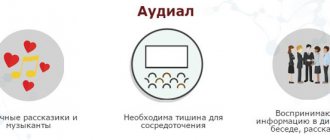Eighteen years old is the age that defines adults. But sometimes it happens that a person reached adulthood a long time ago, but never became an adult.
Feeling like a child, despite the fact that a person is well over thirty, and if we are talking about an elderly person, then “forever young” is not always good. It is good when a person is young in spirit, but fully aware of himself as an adult. The ability to sincerely rejoice, the presence of optimism, the desire to move forward and simple infantilism are different concepts. And if in the first case people do not lose heart, have increased efficiency and a genuine interest in the world around them, while their mental, physical and social status is equal to their age, then in the second they are simply immature, and commit all rash actions for this reason.
So what traits characterize an adult, mature person? Here are 7 main ones.
Independence from other people's opinions
An adult, self-sufficient person is not afraid of what others will think of him. He does not seek outside assessment; the opinion of his inner “I” is enough for him. But at the same time, he will never act to the detriment of others. Demonstrative behavior in order to please others or cause a surge of emotions (simply, envy) is childish.
Mental retardation and dementia
It is a mistake to identify and interchange these concepts. As already mentioned, oligophrenia is a delay in the development of the psyche, which is caused by a pathological change in the brain, manifests itself through intellectual impairment, and leads to social inability. And dementia is an age-related dementia, which is acquired in nature, and consists of a gradual, persistent decrease in cognitive activity, loss of previously acquired knowledge and skills, with the subsequent inability to learn new ones.
Among the main criteria that distinguish dementia from mental retardation are the following (including the above):
- UD is mental underdevelopment, and dementia is the destruction of existing mental functions, which occurs as a result of brain damage. This disorder of brain activity is most often observed in old age. However, mental disorders are possible at a young age as a result of additive behavior (conscious change in consciousness, dependence);
- the collapse of the psyche in dementia begins to progress after a certain period during which the child’s normal, natural development occurred. By the age of 3 years, most of the brain structures have already been formed, so dementia, unlike mental retardation, can be diagnosed only from this age;
- mental retardation is characterized by a non-progressive (progressive) course, while the breakdown of the psyche in dementia begins to intensify after a period of active, normal development. Oligophrenia that appears in childhood is not progressive in nature - human development does not stop completely, but only its pace slows down. At the same time, the main difference between the above mental disorders is the presence of an intellectual defect, which appears only with a diagnosis of “dementia”;
- With dementia, there is unevenness in cognitive functions. In one area of the brain, pronounced disturbances may be observed, while in another, the safety of all previously acquired information and skills can be observed.
It should be noted that differentiating oligophrenia and dementia at an early age (up to 3 years) is extremely difficult. Any damage to the brain can lead to the breakdown or loss of mental functions, which can lead to a general mental retardation, short-term, permanent or progressive. Therefore, only a qualified specialist who has the necessary knowledge and experience should diagnose the disease.
Complete independence
This is absolute mental, physical and financial independence. There can be no talk of independence if a person is unable to make a choice without instructions, advice or direction from the outside (most often parents act as regulators). Special attention is required by the fact that an independent adult does not need financial support from third parties. By the way, the habit of constantly getting into financial debt is a sign of infantilism.
What is it to be an adult, why is it necessary and why is it so difficult?
What is psychological maturity?
What does it mean to be an adult?
And why don’t many of us know how to do this, although according to our passports it would seem that it’s high time? The fact is that there is physical maturity, and there is psychological. And sometimes they don't match. I think any of us knows teenagers and children who seem to have already been born serious and responsible... and eternal boys and girls who may be 30, 40 and 50+ years old. It would seem great to be a big child who is able to have fun regardless of age... but it's not so simple. Let's try to figure it out.
What is he like – a psychologically mature person?
Usually, when they talk about growing up, they mention first of all personal qualities. And the main sign of psychological maturity is the ability to take responsibility for your life, for your mental, emotional and physical state.
In addition, it is believed that a psychologically mature person should be able to:
- Make decisions independently and be responsible for their consequences, including negative ones
- Acknowledge and take responsibility for mistakes, but be able to forgive yourself for them
- Control emotions if necessary, express them constructively - that is, do not put pressure on yourself, but also do not burden others with them
- Perceive reality adequately and have no illusions about yourself and the world around you
- Communicate with people, take their opinions into account, but at the same time - do not depend on the criticism of others
- Establish interaction and relationships with people around you, without the need for constant attention, understanding and empathy
- Concentrate, concentrate on work, a task, successfully motivate yourself to work and overcome difficulties, while being able to rest on time
- Accept, forgive and love yourself, but at the same time be able to control yourself and not indulge your weaknesses
- Accept, forgive and love other people, but at the same time be able to protect your personal boundaries and defend your dignity
- Understand when you need help and accept it
- Be aware of your behavior, reflect, analyze your life experience
The list is impressive, isn't it? If you put all this together, you get some kind of angel in the flesh without a single weakness. Or a robot. I’m not like that, and I think you aren’t either. And it’s unlikely that you’ve seen anything like this anywhere. It turns out that there is not a single adult in the world? And then, what about childlike spontaneity, joy of life and the ability for spontaneity and carelessness? Really, if you want to be an adult, you have to forget about them while trying to complete the items on the list?
In general, two related questions arise:
- Do you need to conform to adult qualities 100% 24 hours a day?
- If you know how to be an adult, does this mean you are unable to be a child?
The answer to both is no!
Being an adult does not mean losing the ability to be a child, denying yourself spontaneity and liveliness. On the contrary, the better developed your adult qualities are, the more naturally your childish, spontaneous and creative state manifests itself, and vice versa.
An adult is not someone who is necessarily serious; he is only capable of working responsibly and restraining his emotions. Rather, this is a person who is able to harmoniously interact with his states, one who knows how to enter them if necessary and partially control (but at least be aware of). Someone who understands when it is necessary to “turn on” the adult state, when it is necessary to turn on the child’s state, and at some point, perhaps, the parental state (this is the mental state in which a person teaches, cares, and protects). And what is very important is that such a person understands the inevitability of mistakes along this path, is able to accept them calmly and move on.
The character qualities of an adult that I have described are important. But this list is not intended to test yourself against it and be upset that you don’t measure up. This is a guideline that shows what qualities you need to develop in yourself and what is missing. After all, an adult is, first of all, one who accepts his problems and weaknesses and is ready to work with them.
There are really few adults. Some psychologists believe that less than 10% of adults according to their passport can really be considered as such. But not because they do not correspond to the list of adult qualities, but because they do not know how to harmoniously interact with themselves and their conditions.
Most people move from one state to another spontaneously when triggered by circumstances. Or they simply hang out in one of them, for example, in any situation they play out a capricious child or a constantly lecturing adult.
We are not talking about accepting mistakes either. Some are tormented by a feeling of guilt due to their own inadequate reactions, others live as they live and blame others for their troubles.
Why be an adult?
Why all this responsibility, seriousness and determination, especially in such frightening quantities? Why strain so much, waste time and energy, admit your own mistakes, work on yourself? In short, is it worth spending so much effort and becoming an adult?
The fact is that only psychologically adults are capable of getting what they want in life. That is, achieve your goals, realize your dreams, live happily and harmoniously. An adult does what he wants, and most importantly, he understands what exactly he wants. He has more opportunities, lives in a friendlier and more interesting world, and is less nervous and anxious. He enjoys what he has and at the same time strives for something new.
This doesn't mean he doesn't have problems. On the contrary, sometimes it may seem that he has more of them than others. This is not true, he just sees them more clearly. At the same time, he has many more methods for solving his own problems than other people.
If a psychologically adult person is faced with something that does not depend on him, for example, the death of loved ones, he can use tools to work with his emotions. He does not become omnipotent and eternally joyful. But he gets the opportunity to choose how to react to events. This is a skill that is more important than many others.
Why are there so few psychologically mature people?
If everything is so wonderful, then why are so few people grown up?
The fact is that we are not taught this. Our parents basically taught us to survive, to adapt, to adapt to the world, the way they themselves did it. And we copied them.
And if a person has been taught to live irresponsibly since childhood, then it is very difficult to relearn, and there is no reason to. Being psychologically immature is, in a sense, beneficial. You can always blame your problems on someone else; there will always be someone who will help, take pity and warm the unfortunate victim. An irresponsible, psychologically immature person easily fits into society and is convenient for the state. He doesn't question anything, doesn't go beyond limits, is easy to control, easy to deceive and confuse. Even if such a person rebels, he is predictable. He himself is comfortable among others like him, among those who encourage his desire to blame everyone around for his problems, and not change anything himself.
Is it possible to grow up?
Psychological immaturity is not a death sentence. A person can change at any age if he has such a desire.
To become an adult, you need to develop responsibility, determination and awareness. But the most important thing is to understand that the responsibility for your life, your happiness, your problems and their solution lies only with you. If you are over 20 years old and you say “my mother ruined my life,” “my husband does not allow me to develop,” “my mother-in-law ruined my marriage,” or “my children make me unhappy,” this is not an adult position.
People, especially those close to us, influence us, but we make the final decision. Once you truly understand this, you will become an adult. And you can change your life.
Admitting this is difficult and unpleasant. Most choose not to do this. But they rarely achieve their goals, build harmonious relationships, or live happy lives.
The choice is yours.
Vadim Kurkin
Integral worldview
This suggests that a person is able not only to draw conclusions and conclusions based on his own perception of the surrounding reality, but to feel himself a part of it, to put himself in the place of others in a given situation. A simple example: blind criticism, when a person, without getting to the point, without examining what is happening from all angles, makes hasty conclusions, and sometimes even condemns, has nothing in common with the integral worldview.
Photo: Pixabay
Author: Sergey Tumanov
Stop demanding and learn to give
One of the main conditions for psychological maturity is the ability not only to consume (goods, love, accept gifts, and so on), but also to give something to other people. Moreover, we are talking specifically about “giving” unconditionally. We simply share our attention, care and affection because we choose to do so.
Egocentrism is inherent in immature children. According to their passports, they may be 30 or 40 years old, but the fixation on their person, characteristic of young children, remains throughout their lives.
Harmonious relationships with the opposite sex are important for the development of personality and a happy life. One of the main conditions for a fulfilling relationship between a man and a woman is the ability to give a partner love, understanding, care and admiration.
Love is not a balance sheet. How to grow up psychologically? Stop keeping score of your own manifestations of attention and start giving more than you receive in return.
What about teenagers?
Teenagers who are not growing up give parents the most trouble: sometimes such children drive mom and dad to despair.
In this case, children need help. For example, your son or daughter does not want to study, does not go to bed on time, and cannot wake up in the morning because he again sat at the computer all night. Try to let the situation take its course, especially if you are sure that the child is still getting good grades only thanks to your tireless vigilance.
Give your teenager the opportunity to get a bad grade - he will see what his recklessness leads to. Demand that the situation be corrected: this way he will learn to correct mistakes and will conclude that it is easier not to make them.
Do not clean the room of an older child, teach him to cook and ask for help in any matter. Praise and say - what a wonderful adult son or daughter you have raised!
What about adults?
If your over-aged son or daughter does not want to work or study, lives on everything ready and behaves like spoiled kids, there is only one way out. You need to immediately stop patronizing such a person, not give him money, and offer to live on your own.
This categorical decision is not easy - it is clear that you feel sorry for your adult child, but the need is really ripe. You can, for example, give yourself the opportunity to relax: go to a resort or visit relatives, and let the child live alone and decide for himself what and how to live.
What to do with an adult child who does not want to grow up?











